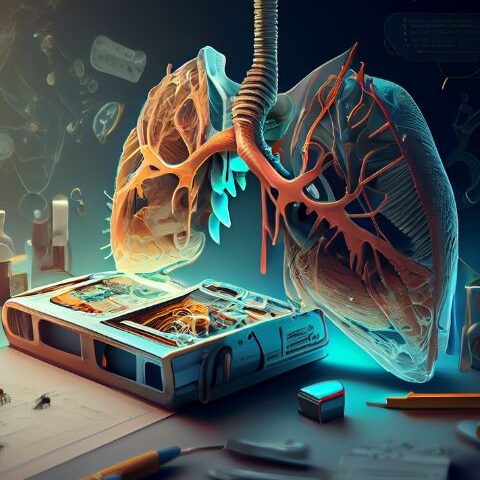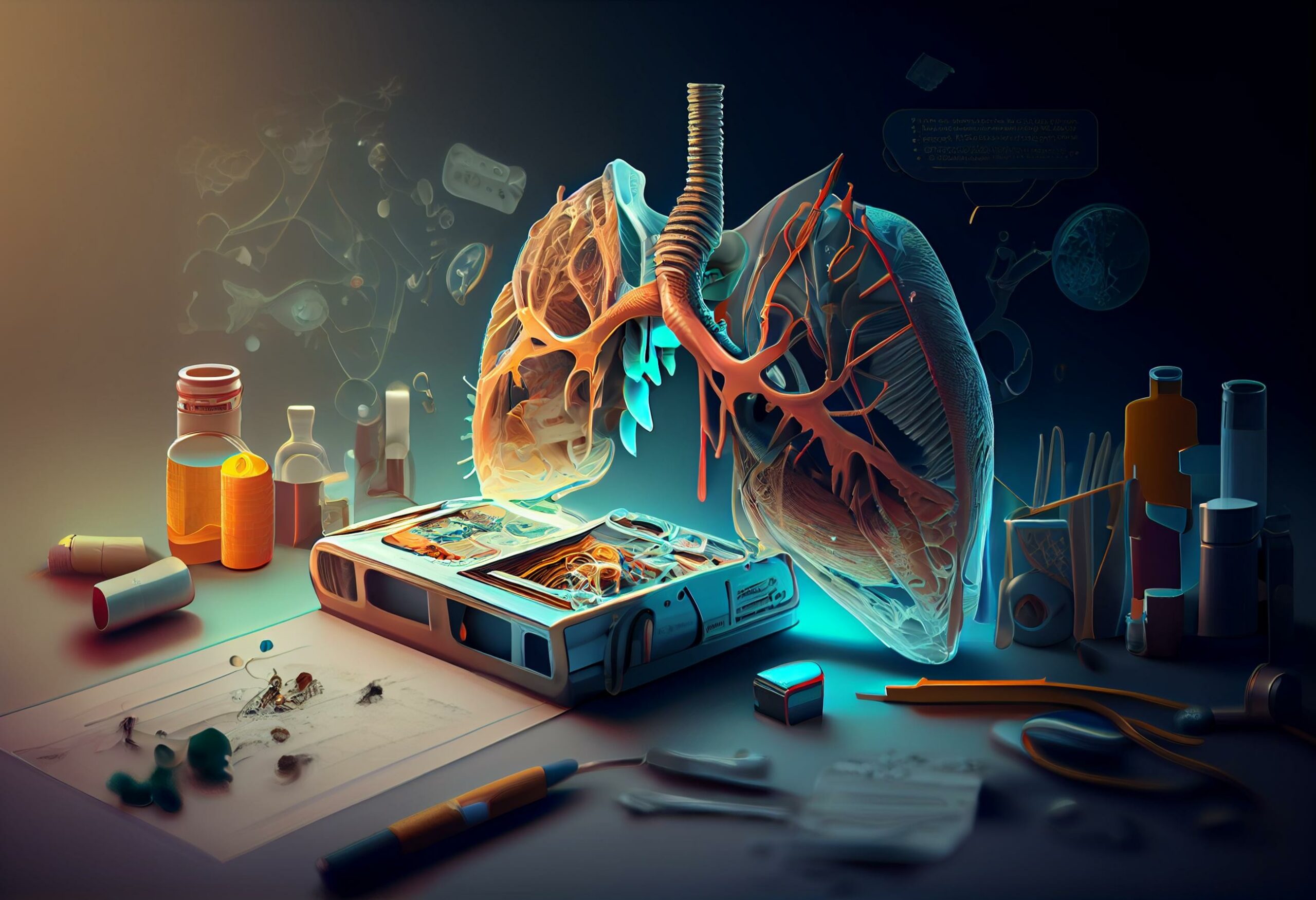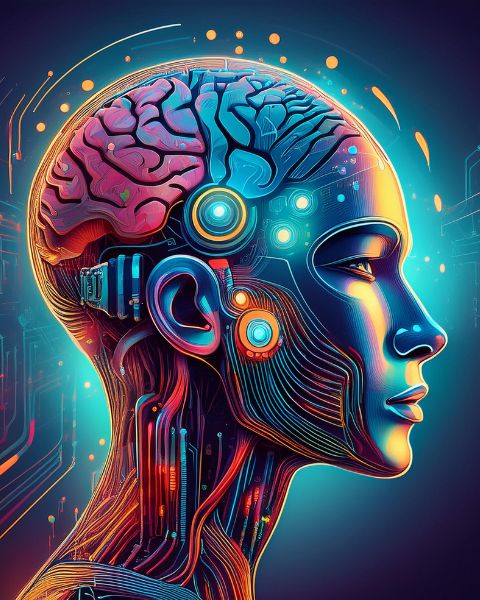
Bug Juice Camp Drink Recipe: A Refreshing Classic for Outdoor Adventures
August 6, 2024
70’s Bollywood Retro Fashion: A Timeless Trend
August 7, 2024

In recent years, the integration of generative AI in drug discovery has revolutionized the pharmaceutical industry. This cutting-edge technology offers new possibilities in identifying potential drug candidates, streamlining the drug development process, and ultimately bringing effective treatments to market faster and more efficiently. In this article, we will explore the role of generative AI in drug discovery, its benefits, applications, and the future it holds for the pharmaceutical sector.
Understanding Generative AI
Generative AI refers to a class of artificial intelligence models that can generate new data or content by learning patterns from existing data. Unlike traditional AI, which primarily focuses on analyzing and predicting outcomes based on given data, generative AI creates new, synthetic data. This technology encompasses various models, including Generative Adversarial Networks (GANs), Variational Autoencoders (VAEs), and transformer-based models like GPT-3.
The Importance of Drug Discovery
Drug discovery is a complex and costly process that involves identifying new therapeutic compounds, testing their efficacy and safety, and bringing them to market. Traditional drug discovery methods are time-consuming and often result in high failure rates. With the advent of generative AI, researchers and pharmaceutical companies have found new ways to accelerate this process and improve the success rate of discovering effective drugs.
How Generative AI Enhances Drug Discovery
1. Identifying Novel Drug Candidates
Generative AI can analyze vast datasets of chemical compounds and biological data to identify novel drug candidates. By learning patterns and relationships within the data, generative models can propose new molecular structures that have the potential to interact with specific biological targets. This process significantly expands the pool of potential drug candidates beyond what traditional methods can achieve.
2. Optimizing Drug Design
Once potential drug candidates are identified, generative AI can optimize their design. This involves fine-tuning the molecular structures to enhance their efficacy, reduce toxicity, and improve pharmacokinetic properties. Generative models can simulate how modifications to the molecular structure impact its interaction with biological targets, leading to more effective and safer drugs.
3. Predicting Drug-Target Interactions
Predicting how a drug will interact with its target is a critical step in drug discovery. Generative AI models can predict these interactions by analyzing vast amounts of biological data, including protein structures and genetic information. This predictive capability helps researchers identify promising drug candidates with a higher likelihood of success in clinical trials.
4. Reducing Time and Cost
The traditional drug discovery process is notoriously time-consuming and expensive. Generative AI can significantly reduce both time and cost by automating various stages of the process. By rapidly generating and evaluating potential drug candidates, AI models can streamline the development pipeline, allowing researchers to focus on the most promising compounds.
5. Personalized Medicine
Generative AI also plays a crucial role in the development of personalized medicine. By analyzing individual genetic and biological data, AI models can propose tailored drug treatments for specific patients. This approach ensures that patients receive treatments that are more effective and have fewer side effects, ultimately improving patient outcomes. This is one of the crucial role of generative AI in drug discovery.
Applications of Generative AI in Drug Discovery
1. De Novo Drug Design
De novo drug design involves creating entirely new molecular structures from scratch. Generative AI models can generate novel compounds with specific properties that align with desired therapeutic outcomes. This approach has the potential to discover drugs for diseases that currently have no effective treatments.
2. Drug Repurposing
Drug repurposing involves finding new therapeutic uses for existing drugs. Generative AI can analyze existing drug databases and propose alternative uses for known compounds. This approach can save time and resources by leveraging already-approved drugs for new indications.
3. Predictive Toxicology
Ensuring the safety of new drugs is a critical aspect of drug discovery. Generative AI models can predict the toxicity of potential drug candidates by analyzing chemical structures and biological data. This predictive capability helps researchers avoid investing in compounds that are likely to fail due to safety concerns.
4. Antibody Design
Antibodies are essential components of many modern therapies, including cancer treatments and vaccines. Generative AI can design antibodies with improved binding affinity and specificity to their targets. This technology accelerates the development of highly effective antibody-based therapies.
5. Virtual Screening
Virtual screening involves using computer simulations to evaluate the potential of large libraries of compounds. Generative AI models can enhance virtual screening by generating new compounds and predicting their interactions with biological targets. This approach accelerates the identification of promising drug candidates.
The Future of Generative AI in Drug Discovery
The future of generative AI in drug discovery is promising, with several exciting developments on the horizon. As AI models become more advanced and capable of processing larger datasets, their predictive accuracy and generative capabilities will continue to improve. This advancement will lead to the discovery of more effective and safer drugs, ultimately benefiting patients worldwide.
Collaborative Efforts
The integration of generative AI in drug discovery requires collaboration between pharmaceutical companies, research institutions, and technology providers. Collaborative efforts will drive innovation and ensure that AI models are continuously refined and validated through real-world applications.
Ethical Considerations
As with any advanced technology, the use of generative AI in drug discovery raises ethical considerations. Ensuring transparency, data privacy, and unbiased algorithms is essential to maintain trust in AI-driven drug development processes. Addressing these ethical concerns will be crucial as AI becomes more prevalent in the pharmaceutical industry.
Regulatory Frameworks
Regulatory agencies will play a vital role in overseeing the use of generative AI in drug discovery. Developing clear guidelines and frameworks for AI-driven drug development will ensure that new treatments meet rigorous safety and efficacy standards. Regulatory bodies will need to adapt to the rapidly evolving landscape of AI technology.
Conclusion
Generative AI is transforming the field of drug discovery by identifying novel drug candidates, optimizing drug design, predicting drug-target interactions, and reducing time and cost. Its applications range from de novo drug design to predictive toxicology and antibody design. The future of generative AI in drug discovery holds immense potential, promising more effective and personalized treatments for patients. As this technology continues to evolve, collaborative efforts, ethical considerations, and regulatory frameworks will be essential in harnessing its full potential for the benefit of global healthcare.
By integrating generative AI into the drug discovery process, the pharmaceutical industry is poised to overcome traditional challenges and usher in a new era of innovative and life-saving therapies.



